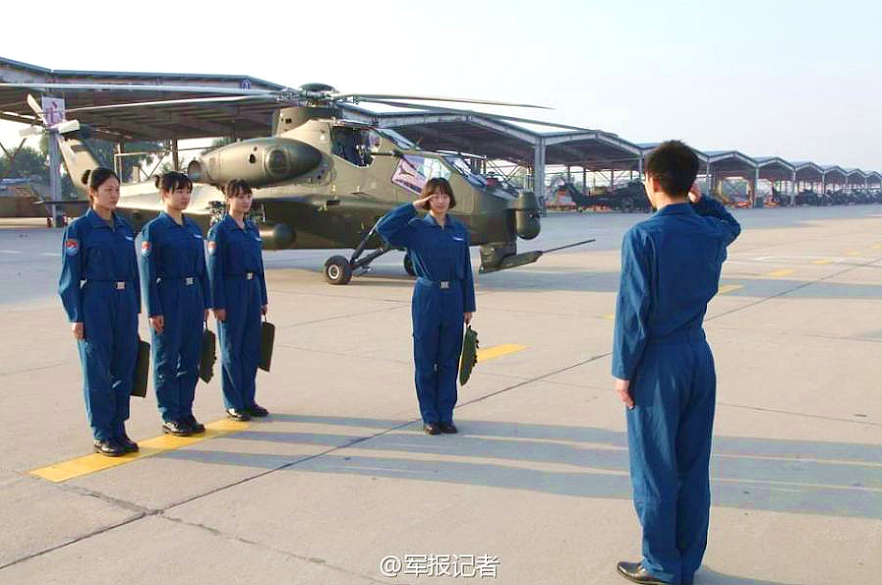European & US helicopter Makers Bid for $2bn Japan Deal
http://www.reuters.com/article/2014/...0OP07U20140610
Japan is in early talks with top global helicopter makers and their Japanese partners about a deal worth around $2 billion to supply transport aircraft to its military that would also be sold overseas, sources with knowledge of the discussions said.
The talks, which began in earnest over the past two months, represent another milestone in Prime Minister Shinzo Abe's bid to nurture a domestic military export industry that would also bring down Japan's defence procurement costs at a time of rising tensions between Tokyo and an increasingly assertive China.
Abe has eased decades-old restrictions on Japan's military exports and is looking to give its armed forces a freer hand in conflicts by changing the interpretation of a pacifist constitution dating from Japan's defeat in World War Two.
The project, dubbed the UH-X, is meant to replace around 150 of Japan's aging fleet of troop-carrying Huey helicopters, a design by Bell that dates from before the Vietnam War. It is likely to run for at least a decade and cost as much as $2 billion, one of the people with knowledge of the process said.
Airbus Helicopters, a division of the European aerospace giant, has joined with defence contractor Kawasaki Heavy Industries, while Bell Helicopter, a unit of industrial conglomerate Textron, is partnered with Fuji Heavy Industries, the maker of Subaru cars, the two sources said.
AugustaWestland, part of Italy's Finmeccanica Spa, is looking to sell Japan helicopters through Japanese trading company Mitsui & Co., which would be assembled by Fuji Heavy, they said.
By creating a market beyond Japan for the UH-X project, officials hope to bring down the per-unit costs of the helicopter for Japan's Self-Defence Forces (SDF), part of a bid to keep pace with China's expanding military.
"The aim is to keep costs down," said one of the people with knowledge of the project, who asked not to be named because the discussions remain private.
Japan's government sent out an early "request-for-information" from the bidders over the past two months. Officials hope to move quickly to the next stage in which the bidding companies would be asked to submit detailed proposals, including costs, the sources said.
While the UH-X project was public knowledge, the involvement of Airbus Helicopters, AugustaWestland and Bell Helicopters and their local partners had not been previously reported.
Airbus and Bell declined to comment on their intentions in Japan, while AugustaWestland did not respond to a request to discuss its business in Japan. Kawasaki and Fuji Heavy declined to comment, while no-one from Mitsui & Co was immediately available for comment.
MORE BANG FOR YOUR YEN
Japan and China have been mired in a dispute over ownership of tiny islands in the East China Sea, with tensions spiking last month when Japan said Chinese aircraft had come within a few dozen metres fo its warplanes.
In the 20 years to 2012, Japan was the sixth-biggest military spender in the world, according to the Stockholm International Peace Research Institute. China jumped to second place from the seventh after it hiked its defence spending more than five-fold over the same period.
Japan said last year that it would raise its military spending by almost 3 percent over five years. But with spending constrained, Japan's military planners have turned to ways to increase the efficiency of defence spending programmes to counter China.
Industry analysts say Japan's armed forces often pay two to three times more for military equipment than other comparable countries because defence contractors are limited to fabricating small lots for the SDF.
Selling the new helicopter overseas should lower the cost paid per unit by Japan's military by widening the production base. Including foreign companies would also help spread development costs.
In a related move, Japan plans to create an arms procurement agency to streamline spending and promote military exports that merge spending by the sea, land and air forces, according to people involved in the planning.
HELICOPTER PROPOSALS
Kawasaki and Airbus Helicopters, formerly Eurocopter, which are already partners on the successful BK117 utility transport that first flew 35 years ago, are offering a new design for the UH-X, according to the sources who spoke to Reuters.
The Ministry of Defence awarded Kawasaki Heavy the UH-X contract in 2012, but cancelled the contract in March 2013 after two SDF officers said they had helped the company win the deal by leaking information on the bid.
Bell and Fuji Heavy are proposing an aircraft based on the Bell 412 utility helicopter, military versions of which are used in countries ranging from Britain to Colombia, Ghana and Thailand.
AugustaWestland is offering its 10-seat twin-engined AW169, the prototype of which first flew in 2012. Using Mitsui as its partner in Japan, the company has told the Japanese government it would recruit Fuji Heavy to assemble the aircraft under licence.
A partnership of Sikorsky Aircraft, which is owned by United Technologies Corp, and Japan's biggest defence contractor Mitsubishi Heavy Industries had initially shown interest in the UH-X, but did not responded to requests for information from the Defence Ministry, according to one of the sources. Mitsubishi Heavy and Sikorsky declined to comment.
The talks, which began in earnest over the past two months, represent another milestone in Prime Minister Shinzo Abe's bid to nurture a domestic military export industry that would also bring down Japan's defence procurement costs at a time of rising tensions between Tokyo and an increasingly assertive China.
Abe has eased decades-old restrictions on Japan's military exports and is looking to give its armed forces a freer hand in conflicts by changing the interpretation of a pacifist constitution dating from Japan's defeat in World War Two.
The project, dubbed the UH-X, is meant to replace around 150 of Japan's aging fleet of troop-carrying Huey helicopters, a design by Bell that dates from before the Vietnam War. It is likely to run for at least a decade and cost as much as $2 billion, one of the people with knowledge of the process said.
Airbus Helicopters, a division of the European aerospace giant, has joined with defence contractor Kawasaki Heavy Industries, while Bell Helicopter, a unit of industrial conglomerate Textron, is partnered with Fuji Heavy Industries, the maker of Subaru cars, the two sources said.
AugustaWestland, part of Italy's Finmeccanica Spa, is looking to sell Japan helicopters through Japanese trading company Mitsui & Co., which would be assembled by Fuji Heavy, they said.
By creating a market beyond Japan for the UH-X project, officials hope to bring down the per-unit costs of the helicopter for Japan's Self-Defence Forces (SDF), part of a bid to keep pace with China's expanding military.
"The aim is to keep costs down," said one of the people with knowledge of the project, who asked not to be named because the discussions remain private.
Japan's government sent out an early "request-for-information" from the bidders over the past two months. Officials hope to move quickly to the next stage in which the bidding companies would be asked to submit detailed proposals, including costs, the sources said.
While the UH-X project was public knowledge, the involvement of Airbus Helicopters, AugustaWestland and Bell Helicopters and their local partners had not been previously reported.
Airbus and Bell declined to comment on their intentions in Japan, while AugustaWestland did not respond to a request to discuss its business in Japan. Kawasaki and Fuji Heavy declined to comment, while no-one from Mitsui & Co was immediately available for comment.
MORE BANG FOR YOUR YEN
Japan and China have been mired in a dispute over ownership of tiny islands in the East China Sea, with tensions spiking last month when Japan said Chinese aircraft had come within a few dozen metres fo its warplanes.
In the 20 years to 2012, Japan was the sixth-biggest military spender in the world, according to the Stockholm International Peace Research Institute. China jumped to second place from the seventh after it hiked its defence spending more than five-fold over the same period.
Japan said last year that it would raise its military spending by almost 3 percent over five years. But with spending constrained, Japan's military planners have turned to ways to increase the efficiency of defence spending programmes to counter China.
Industry analysts say Japan's armed forces often pay two to three times more for military equipment than other comparable countries because defence contractors are limited to fabricating small lots for the SDF.
Selling the new helicopter overseas should lower the cost paid per unit by Japan's military by widening the production base. Including foreign companies would also help spread development costs.
In a related move, Japan plans to create an arms procurement agency to streamline spending and promote military exports that merge spending by the sea, land and air forces, according to people involved in the planning.
HELICOPTER PROPOSALS
Kawasaki and Airbus Helicopters, formerly Eurocopter, which are already partners on the successful BK117 utility transport that first flew 35 years ago, are offering a new design for the UH-X, according to the sources who spoke to Reuters.
The Ministry of Defence awarded Kawasaki Heavy the UH-X contract in 2012, but cancelled the contract in March 2013 after two SDF officers said they had helped the company win the deal by leaking information on the bid.
Bell and Fuji Heavy are proposing an aircraft based on the Bell 412 utility helicopter, military versions of which are used in countries ranging from Britain to Colombia, Ghana and Thailand.
AugustaWestland is offering its 10-seat twin-engined AW169, the prototype of which first flew in 2012. Using Mitsui as its partner in Japan, the company has told the Japanese government it would recruit Fuji Heavy to assemble the aircraft under licence.
A partnership of Sikorsky Aircraft, which is owned by United Technologies Corp, and Japan's biggest defence contractor Mitsubishi Heavy Industries had initially shown interest in the UH-X, but did not responded to requests for information from the Defence Ministry, according to one of the sources. Mitsubishi Heavy and Sikorsky declined to comment.










Comment